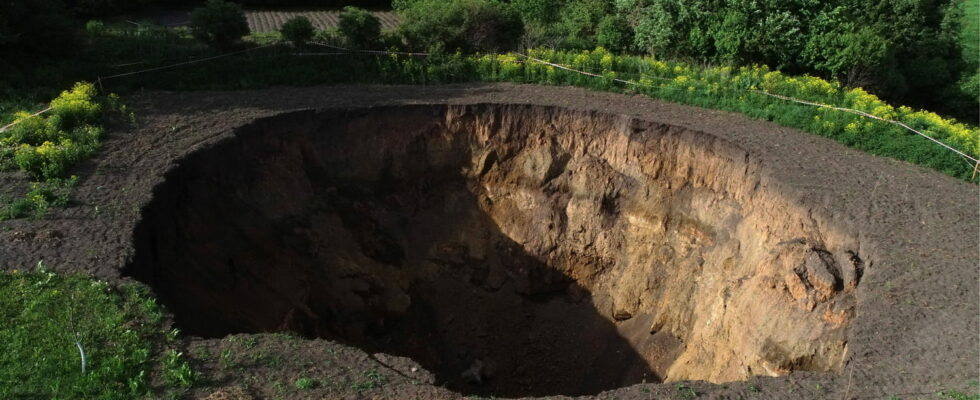Land collapses have occurred in different parts of the world and farmers are the first to be affected. An ecological disaster.
In the middle of their wheat fields, more and more farmers are discovering gaping holes in their plantations. This phenomenon, once natural, tends to become more widespread and amplified. Normally, these collapses, also called “sinkholes”, are caused by the infiltration of rainwater, whose hydrogen potential (pH) is naturally acidic, into the soil. This liquid “erodes the underlying rock, thus creating damage below the surface”, indicates National Geographic. However, in recent years, these craters have become so recurrent that it is no longer accurate to speak of “natural origin”. These new sinkholes are now caused by excessive pumping of groundwater for irrigation.
If, in France, the phenomenon remains rare, we must be very vigilant about the causes at the origin. We must especially look at Anatolia, in Türkiye, where the fields of the Konya Karapınar region have experienced massive collapses. And this for one and the same reason: intensive agriculture. According to the Sinkhole Research Center at Konya Technical University, their number increased from 299 in 2017 to 2,550 in 2021.
This meteoric progression can be explained by the intensification of agricultural practices. In 2019, the country alone represented more than 10.5% of total fruit and vegetable exports, a gain of around 15 billion euros net according to the French Ministry of Agriculture.

In the magazine Future ScienceProfessor Fetullah Arik, director of the geological engineering department at Konya University, deplores the consequences of this situation. According to him, it results in an “annual drop in the water table level of 1 to 2 meters after the 2000s” and in a “fall of more than 20 meters per year in certain observation wells in recent years”. These worrying figures highlight the accelerated depletion of groundwater resources, the main driver of the formation of sinkholes.
Turkey is paying the price for its transition to intensive agriculture, inherited from the 1960s. At that time, farmers were forced to dig ever deeper wells to irrigate their most water-intensive crops, such as corn and beets. sugar and alfalfa. According to figures from Futura Sciences, in Konya Karapınar, “nearly 90% of water is used for agricultural purposes, half of which comes from groundwater.” For good reason, the lack of precipitation prevents the irrigation of crops such as wheat and barley with rainwater, further increasing the pressure on underground water resources.
In September 2024, many farmers mobilized to fight against agro-industry traders who force them to sell their products ever cheaper. Faced with this growing demand, they are forced to find criminal solutions: in the Konya Karapınar region, estimates suggest more than 100,000 illegal wells, compared to 35,000 authorized wells. This is a real climate and social emergency. And it is not only specific to Turkey. For good reason, similar sinkholes have been observed in Australia, Israel and the United States, near Florida.
